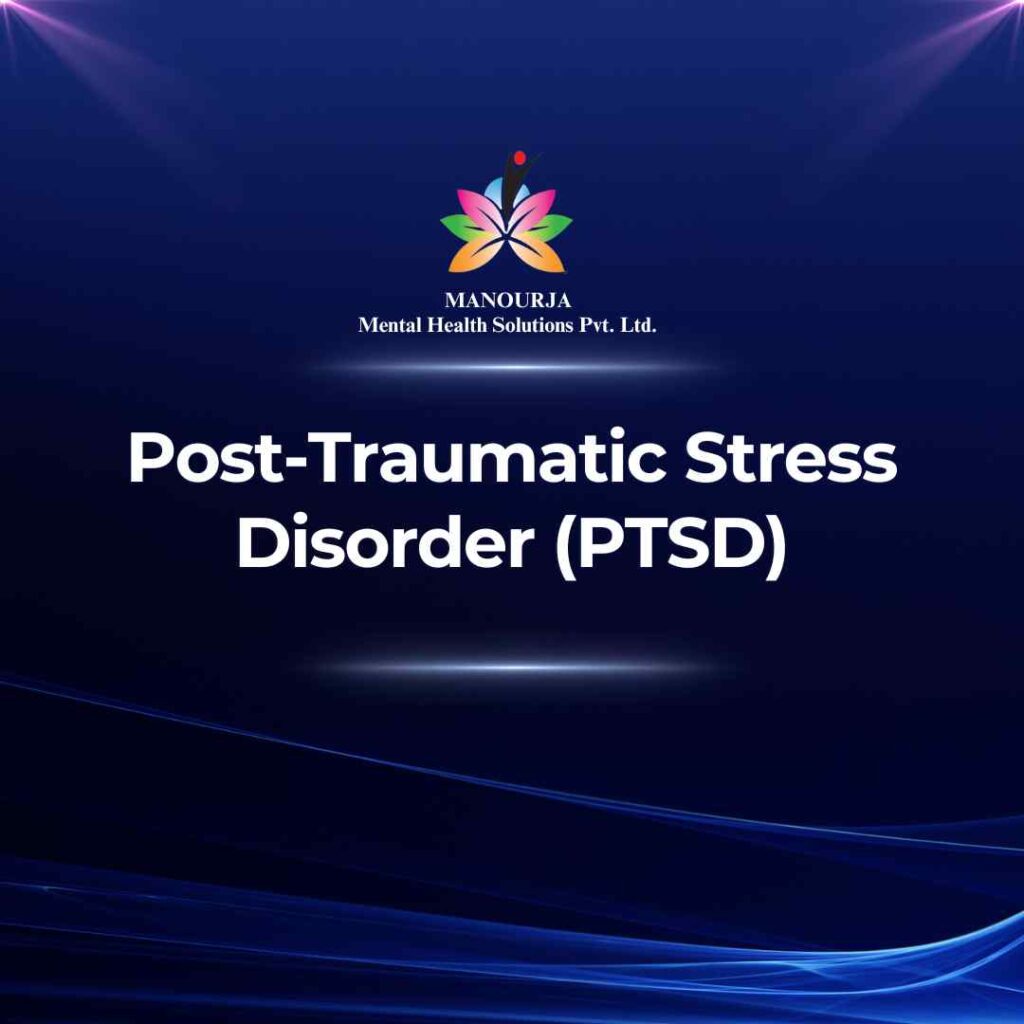Post-Traumatic Stress Disorder (PTSD)

Post-Traumatic Stress Disorder (PTSD) is a severe mental health condition that can develop after a person has experienced or witnessed a traumatic event. This event could involve a threat to life or safety, extreme physical harm, or significant emotional distress. Common triggers include natural disasters, serious accidents, terrorist acts, war, rape, and other violent personal assaults.
Symptoms of PTSD
PTSD is characterized by several core symptoms, which are grouped into four main categories:
- Intrusive Thoughts: These include recurrent, involuntary, and distressing memories of the traumatic event. Individuals may also experience flashbacks where they feel or act as if the event is happening again, and nightmares related to the trauma.
- Avoidance: Individuals may avoid thoughts, feelings, conversations, activities, places, or people that remind them of the traumatic event. This is a defense mechanism intended to reduce distress but can interfere with recovery and daily functioning.
- Negative Changes in Thinking and Mood: This can manifest as ongoing negative emotions (such as fear, horror, anger, guilt, or shame), inability to experience positive emotions, feeling detached from others, persistent inability to maintain close relationships, or a distorted sense of blame related to the event.
- Alterations in Arousal and Reactivity: These are marked by increased irritability, angry outbursts, reckless or self-destructive behavior, being easily startled, a heightened sense of vigilance, and difficulty concentrating or sleeping.
Forms of PTSD
While PTSD symptoms are generally consistent, they can manifest in different forms based on their severity, duration, and the presence of co-occurring conditions:
- Acute PTSD: Where symptoms last for less than three months.
- Chronic PTSD: Symptoms last three months or more.
- Delayed-Onset PTSD: Where symptoms appear at least six months after the traumatic event.
- Complex PTSD: Often develops from prolonged or repeated trauma, and includes additional symptoms such as difficulty controlling emotions, feeling very hostile or distrustful towards the world, and feeling alienated.
Treatment of PTSD
Effective treatment for PTSD typically involves a combination of psychotherapy and medication:
Psychotherapy
- Cognitive Behavioral Therapy (CBT): Helps patients recognize and adjust traumatic thought patterns into more positive coping strategies.
- Prolonged Exposure Therapy: Involves carefully and repeatedly exposing patients to thoughts, feelings, and situations related to their trauma.
- Eye Movement Desensitization and Reprocessing (EMDR): Helps process and make sense of the trauma. It involves recalling distressing images while receiving one of several types of bilateral sensory input.
- Cognitive Processing Therapy (CPT): Under this, Patient learns how to challenge and modify unhelpful beliefs related to the trauma.
Medications
- Antidepressants: Such as SSRIs (e.g., sertraline and paroxetine) and SNRIs (e.g., venlafaxine), are commonly prescribed to help alleviate symptoms of PTSD, including depression and anxiety.
- Prazosin: May be used to treat insomnia or recurrent nightmares in people with PTSD.
Support Groups: Being part of a PTSD support group can also be helpful. Sharing experiences with others who have similar problems can provide emotional support and help develop effective coping and problem-solving strategies.
Self-Management Strategies: Learning and practicing stress-reduction techniques, such as mindfulness, meditation, and proper physical care, can aid in managing symptoms.
Early intervention increases the likelihood of successful treatment and can help prevent PTSD symptoms from worsening. If you or someone you know might be suffering from PTSD, it is crucial to seek professional help.
At MANOURJA, we believe in the transformative power of counseling. Our experienced therapists offer a safe and supportive space where you can explore your thoughts, emotions, and challenges. Through personalized counselling sessions, we’ll work together to develop coping strategies, build resilience, and achieve lasting positive change. Discover the path to a healthier, happier you with MANOURJA counselling services.
MANOURJA Rehabilitation Services
At MANOURJA, we’re dedicated to helping you in rebuild your life, after difficult times. Our rehabilitation services focus on understanding what you need to move forward, whether you’re recovering from addiction, trauma, or any psychological – social challenges. We create personalized plans, that are all about helping you, regain your strength and find hope again. With a caring team by your side, you’ll have the support to make real progress and take steps toward a brighter, healthier future.
